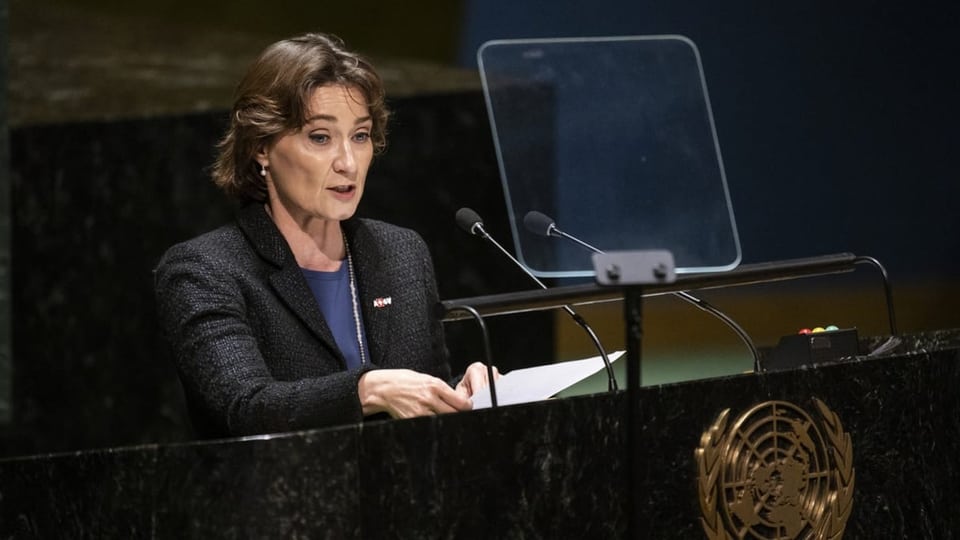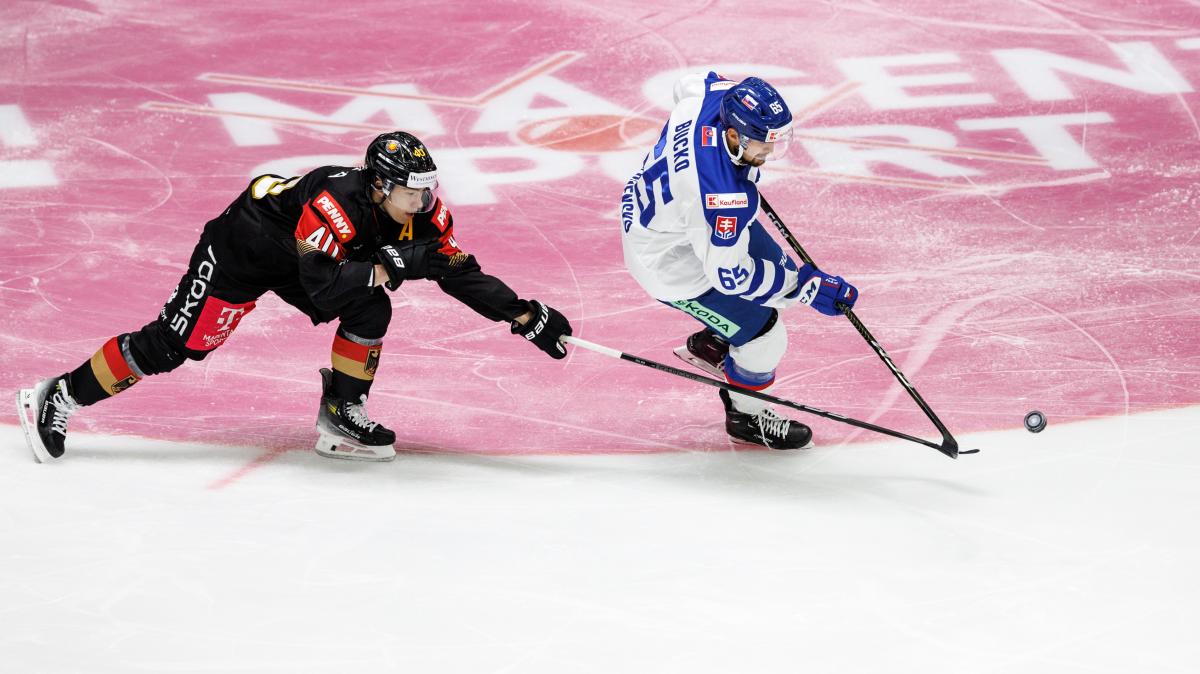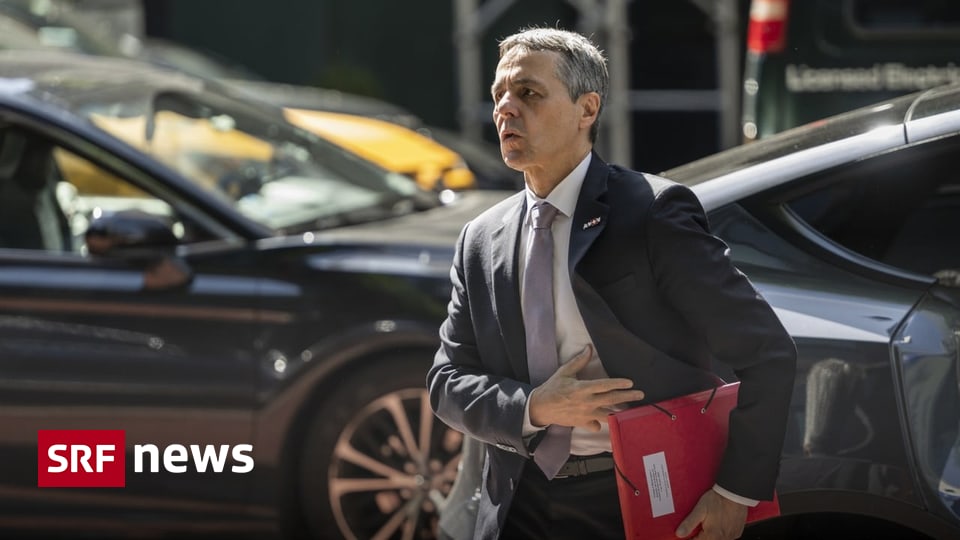Switzerland is about to be elected to the United Nations Security Council today. Federal President Cassis says it is a very important stage.
As early as 2008, the Federal Council considered seeking a seat on the UN Security Council for 2023/2024. In 2011 he officially decided to run. Elections are taking place today.
Switzerland is taking over at a good time: Norway and Ireland’s Security Council terms expire at the end of the year. This means that the Group of Western European States can take two new seats. There are exactly two candidates for this: Switzerland and Malta. So there is no competition.
However, on the eve of the election of the United Nations General Assembly, Federal President Ignazio Cassis confirmed that the matter would not be decided until the result was announced.
Cassis: Don’t worry about neutrality
For Cassis, it goes without saying that Switzerland wants to be on the Security Council: It joined the United Nations 20 years ago, fully and without reservations. He reassured those who still fear neutrality: Switzerland will not lose its neutrality.
Switzerland’s policy will not change – on the other hand, the Security Council has additional opportunities to engage with one’s interests and goals.
Caption:
On Wednesday, the Federal President and Minister of Foreign Affairs, Ignazio Cassis, arrived from Washington at the headquarters of the Swiss Permanent Mission to the United Nations in New York.
stone key
Remarkably, the question of whether neutrality corresponds to a seat on the United Nations Security Council is an almost exclusive issue in Switzerland. In fact, a number of neutral countries were already members of the United Nations Security Council – Sweden, Finland, Austria and now Ireland.
Sweden has been a member four times, each for two years. All of these countries testify that they have done a good job in the most influential body of the United Nations. No one will claim to have betrayed their neutrality. Especially since none of these countries understands neutrality as a waiver of topical references.
A special line is required
It is important for neutral countries to make clear that they do not base their votes and electoral behavior on the position of other, often influential countries, or on the position of power blocs. Rather, it is based on their values and principles.
and finally in core conventions, such as the UN Charter or the UN Declaration of Human Rights. Their principles are guiding principles – not a question of whether the United States, China or the European Union represent this or that view.

Caption:
The head of the Permanent Mission of Switzerland to the United Nations, Pascal Pereswell, spoke before the United Nations General Assembly on Wednesday.
stone key
If a neutral country behaves in this way consistently, it is less at risk of being pressured. Because he can credibly explain what his position references are based on. The neutral countries that were already members of the UN Security Council did well. There is no good reason to believe that Switzerland cannot do the same.
Cassis: a very important stage
At a meeting of other newly nominated countries and UN ambassadors from many other countries at the UN Headquarters in New York, Ignazio Cassis said he had repeatedly heard the following expectations for Switzerland: “Keep doing what you have been doing. Switzerland is known as a builder of bridges, as a country that encourages dialogue and is An innovative and creative country. This is exactly what we expect from us when we sit in the Security Council in the future.”
Switzerland is known as a builder of bridges, as a country that encourages dialogue and is an innovative and creative country. This is exactly what is expected of us.
In the foreign minister’s view, membership in the United Nations Security Council marked the beginning of a very important phase in the history of Swiss foreign policy. One in which Switzerland’s global visibility and opportunities for participation increase dramatically.

“Tv specialist. Friendly web geek. Food scholar. Extreme coffee junkie.”






More Stories
Car or public transportation? The Swiss and Americans commute to work very differently
Pedro Sanchez is considering resigning after filing a complaint against his wife
Extreme heat warning in Thailand and the Philippines